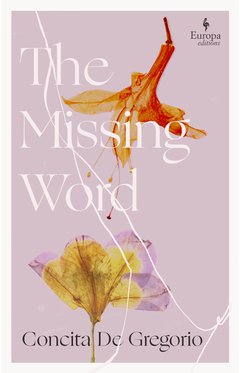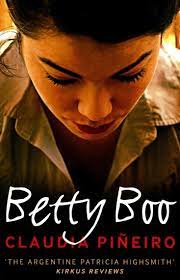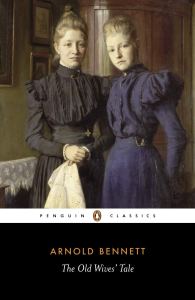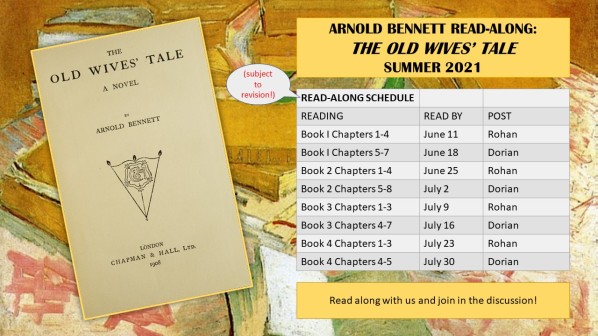 It used to be a ritual for me to post a recap of my summer reading once autumn rolled around again, on the theory that people’s online attention is (rightly!) spottier in the summer and there might be some folks who would like to see what they missed around here. I didn’t do that last year, not because I didn’t read anything last summer but because last year just moving forward from month to month was hard enough, with the backwards drag of grieving, not to look back for other reasons. I’m still mourning—I will always mourn—but as time passes I am more able to be here, now, in the moment, in my moments. I think often these days of Julia Copus’s “The Grievers,” especially these lines:
It used to be a ritual for me to post a recap of my summer reading once autumn rolled around again, on the theory that people’s online attention is (rightly!) spottier in the summer and there might be some folks who would like to see what they missed around here. I didn’t do that last year, not because I didn’t read anything last summer but because last year just moving forward from month to month was hard enough, with the backwards drag of grieving, not to look back for other reasons. I’m still mourning—I will always mourn—but as time passes I am more able to be here, now, in the moment, in my moments. I think often these days of Julia Copus’s “The Grievers,” especially these lines:
What we can’t absorb we carry in us,
a lumpish residue. It’s truly a wonder
we manage to move at all; let alone
as freely as this, with the ease at times
of our old and lighter selves . . .
That quiet qualifier “at times” is the key. I am grateful for those times; I have also learned that they take work, and that they can exact a cost.
Anyway, here I am, still, or again, with another new term unfolding in front of me and another summer of reading—some good, some not so good—behind me. I’ll mostly just walk through the highlights here; anyone who wants to do a deep dive can always use the ‘archives’ menu (on the right sidebar) to browse by month. (I don’t really imagine that anyone would want to do that! But you could, or use the “categories” tags, or the index.)
Two of the best books I read this summer were about grieving mothers. I didn’t pick them for that reason, although one of them, The Missing Word, was recommended to me by a thoughtful friend who thought it might resonate with my own loss—which it did. The Missing Word is slight but powerful, a wrenching but delicate attempt to “say out loud, dry-eyed, the things that can’t be said.” The other, Valerie Perrin’s Fresh Water for Flowers, is more capacious and perhaps, as a result, a bit messier, less controlled. Thinking about the two novels together, I would say that this difference in scope and style reflects their aspirations: De Gregorio especially is trying to stay “dry-eyed” while saying unbearable things, while Perrin is making room for new, fresh possibilities.
Another couple of stand-out reads were two novels by Olivia Manning. I have written here and elsewhere about her Balkan and Levant trilogies, and about the excellent biography of her by Deirdre David, but I hadn’t really ventured into her other fiction before. I was not disappointed: both School for Love and The Doves of Venus are excellent, and both have something of the odd, unsettling quality that makes her more famous series so distinctively good.
 Like everyone else I know, I was really impressed by Elena Knows; it was a treat to find that Piniero’s Betty Boo is also excellent, and to find Some Luck in stock at Bookmark last week—I am looking forward to reading it soon. And the last really good, or at least really enjoyable, read of this summer was Ann Patchett’s Tom Lake.
Like everyone else I know, I was really impressed by Elena Knows; it was a treat to find that Piniero’s Betty Boo is also excellent, and to find Some Luck in stock at Bookmark last week—I am looking forward to reading it soon. And the last really good, or at least really enjoyable, read of this summer was Ann Patchett’s Tom Lake.
I read a lot of perfectly fine books this summer, including Francis Spufford’s Light Perpetual, Elizabeth Lowry’s The Chosen, Daniel Mason’s The Winter Soldier, and Alice Elliott Dark’s Fellowship Point. I read some that I had high expectations for but that didn’t live up to them: Barbara Kingsolver’s Demon Copperhead, Hernan Diaz’s Trust, Kate Zambreno’s Drifts. I read a couple of books that unfortunately I just didn’t like at all, notably Hannah Kent’s Devotion and Yiyun Li’s The Book of Goose. And I read some books for published reviews, including Christine Higdon’s Gin, Turpentine, Pennyroyal, Rue, which I quite liked, Elizabeth Ruth’s Semi-Detached, which I also quite liked, and Daniel Mason’s North Woods, which is very good (my review of this one will be in next week’s TLS).
Overall it was a decent reading summer. I read less than some years, but more than last year, and with more—more what? I want to say something like more capacity, meaning nothing about the quantity of books I read but something about the available space in me, space to receive them. That capacity is still not what it was (I am not what I was). I notice that I am less patient, and so sometimes less persistent. I hope that my grief hasn’t made me an ungenerous reader. I suspect that some of my current reactions are related to grief: I find in particular that I am allergic to magical thinking in books—including  Devotion or Semi-Detached (or, in parts, North Woods)—that otherwise deal in wholly human or natural problems. De Gregorio doesn’t resort to wish-fulfillment or fantasy and that is both the pain and the strength of her treatment of love and loss.
Devotion or Semi-Detached (or, in parts, North Woods)—that otherwise deal in wholly human or natural problems. De Gregorio doesn’t resort to wish-fulfillment or fantasy and that is both the pain and the strength of her treatment of love and loss.
I played Poetry Serendipity often this summer, as I passed through the library for one reason or another. I’ll close with some lines from an enigmatic poem by Marianne Moore called “Picking and Choosing” that is about (I think, and among other things) why and how we read what we read.
Literature is a phase of life. If one is afraid of it,
The situation is irremediable; if one approaches it familiarly,
What one says of it is worthless.
The opaque allusion, the simulated flight upward,
accomplishes nothing. . . .
We are not daft about the meaning,
but this familiarity with wrong meanings puzzles one.
Humming-bug, the candles are not wired for electricity.
Small dog, going over the lawn nipping the linen and saying
that you have a badger—remember Xenophon;
only rudimentary behavior is necessary to put us on the scent.
“A right good salvo of barks,” a few strong wrinkles puckering
the skin between the ears, is all we ask.



















 There was an undeniable nip in the air when I went on my run this morning–the overnight forecast even included the ominous words “risk of frost.” Though we are sure to have some more warm weather as September unfolds, it will be nice fall weather: the season is definitely changing. The other sure sign of that, of course, is that classes start this week. I’ll have more to say about that soon as I begin the 11th season of posts about ‘This Week In My Classes.’ Before summer has completely receded, though, I thought I’d take a look back at its reading highlights.
There was an undeniable nip in the air when I went on my run this morning–the overnight forecast even included the ominous words “risk of frost.” Though we are sure to have some more warm weather as September unfolds, it will be nice fall weather: the season is definitely changing. The other sure sign of that, of course, is that classes start this week. I’ll have more to say about that soon as I begin the 11th season of posts about ‘This Week In My Classes.’ Before summer has completely receded, though, I thought I’d take a look back at its reading highlights. Katherena Vermette’s
Katherena Vermette’s  It’s a bit misleading to call Rhoda Broughton’s
It’s a bit misleading to call Rhoda Broughton’s  Last but not least, I read Sylvia Townsend Warner’s grimly charming
Last but not least, I read Sylvia Townsend Warner’s grimly charming  Of the books I read for reviews, the one I enjoyed the most was Gillian Best’s The Last Wave; my write-up will be in the next issue of Canadian Notes and Queries. Adam Sternbergh’s
Of the books I read for reviews, the one I enjoyed the most was Gillian Best’s The Last Wave; my write-up will be in the next issue of Canadian Notes and Queries. Adam Sternbergh’s  I decided to ease out of the summer with some light reading on this long weekend — first
I decided to ease out of the summer with some light reading on this long weekend — first  The novels of
The novels of  September is here, which means that even though technically it’s still summer, it feels like fall. From now on, every nice day is to be cherished and even the sunniest Sunday will be under the shadow of Monday’s impending classes — though not quite yet, because my first class meetings of the new term aren’t until Wednesday. And as it happens, I will be able to wind up my summer without too much angst: yesterday I realized that right now, though as always there are plenty of things I could be doing, there’s really nothing I must be doing. All the writing I’d promised has been sent along to editors; my courses are prepped, including handouts, lecture notes, and slides for the first day(s); other odds and ends of administrative tasks have been completed. I suppose this is my reward for not really taking a vacation: though I did take it easy when I could, I didn’t travel, and I was in my office almost every weekday getting things done. As a result, I will head into the last long weekend of the summer without either the ambition or the pressure to be working.
September is here, which means that even though technically it’s still summer, it feels like fall. From now on, every nice day is to be cherished and even the sunniest Sunday will be under the shadow of Monday’s impending classes — though not quite yet, because my first class meetings of the new term aren’t until Wednesday. And as it happens, I will be able to wind up my summer without too much angst: yesterday I realized that right now, though as always there are plenty of things I could be doing, there’s really nothing I must be doing. All the writing I’d promised has been sent along to editors; my courses are prepped, including handouts, lecture notes, and slides for the first day(s); other odds and ends of administrative tasks have been completed. I suppose this is my reward for not really taking a vacation: though I did take it easy when I could, I didn’t travel, and I was in my office almost every weekday getting things done. As a result, I will head into the last long weekend of the summer without either the ambition or the pressure to be working. I had intended to create another book club site, probably for The Mill on the Floss, but in the end the time that would have gone into this project went instead into doing more book reviews than I had anticipated. One of my more general goals has been to get more experience and also more recognition for my criticism by writing for a wider range of venues. Because reviews are usually commissioned rather than pitched, I wasn’t sure quite how to do this, but I reached out to a couple of editors and was contacted by a couple of others, and in the end I was kept fairly busy! I consider this time very well spent for a number of reasons. First, I read and thought about a lot of books, some of them ones I would probably not have sought out if left entirely to my own devices. Then, in addition to the intellectual and literary benefits of engaging with a wide range of books, I had to work to deadlines and within space constraints set by other people, and also work with their editorial feedback. I cherish the freedom I have at Open Letters, but sometimes it paralyzes me a bit as I look for “just the right book” to review. I also think my colleagues there are among the very best editors around, but it’s bracing to venture outside, if only to find out what else I might learn. And I do feel that I’ve learned a lot this summer, partly about the genre of reviewing, and partly about my own writing process. I had hoped that writing more and faster would make me, ultimately, a more confident as well as a more widely competent writer, and I think it has.
I had intended to create another book club site, probably for The Mill on the Floss, but in the end the time that would have gone into this project went instead into doing more book reviews than I had anticipated. One of my more general goals has been to get more experience and also more recognition for my criticism by writing for a wider range of venues. Because reviews are usually commissioned rather than pitched, I wasn’t sure quite how to do this, but I reached out to a couple of editors and was contacted by a couple of others, and in the end I was kept fairly busy! I consider this time very well spent for a number of reasons. First, I read and thought about a lot of books, some of them ones I would probably not have sought out if left entirely to my own devices. Then, in addition to the intellectual and literary benefits of engaging with a wide range of books, I had to work to deadlines and within space constraints set by other people, and also work with their editorial feedback. I cherish the freedom I have at Open Letters, but sometimes it paralyzes me a bit as I look for “just the right book” to review. I also think my colleagues there are among the very best editors around, but it’s bracing to venture outside, if only to find out what else I might learn. And I do feel that I’ve learned a lot this summer, partly about the genre of reviewing, and partly about my own writing process. I had hoped that writing more and faster would make me, ultimately, a more confident as well as a more widely competent writer, and I think it has. Here’s the tally of my summer reviewing, meaning books read and written about since classes got out in April:
Here’s the tally of my summer reviewing, meaning books read and written about since classes got out in April: We may have been basking in some gorgeous summer-like weather lately, but classes have begun and that means we are well and truly into fall. It had been very quiet around campus — though I find the hush kind of dreary sometimes, I’d gotten used to it, and I’ve been feeling kind of cranky at the return of loud, cheerful voices in the hallway, doors opening and closing all the time, and other people impeding my progress on the narrow stairs! But the renewed energy is welcome, as is (mostly) the return to a more active, immediately demanding routine.
We may have been basking in some gorgeous summer-like weather lately, but classes have begun and that means we are well and truly into fall. It had been very quiet around campus — though I find the hush kind of dreary sometimes, I’d gotten used to it, and I’ve been feeling kind of cranky at the return of loud, cheerful voices in the hallway, doors opening and closing all the time, and other people impeding my progress on the narrow stairs! But the renewed energy is welcome, as is (mostly) the return to a more active, immediately demanding routine.







